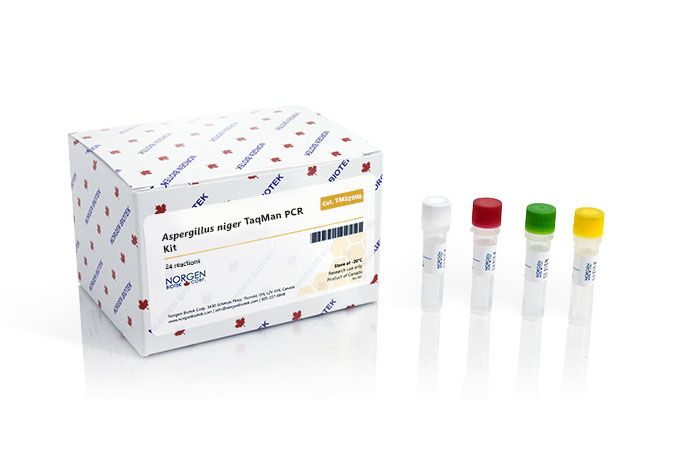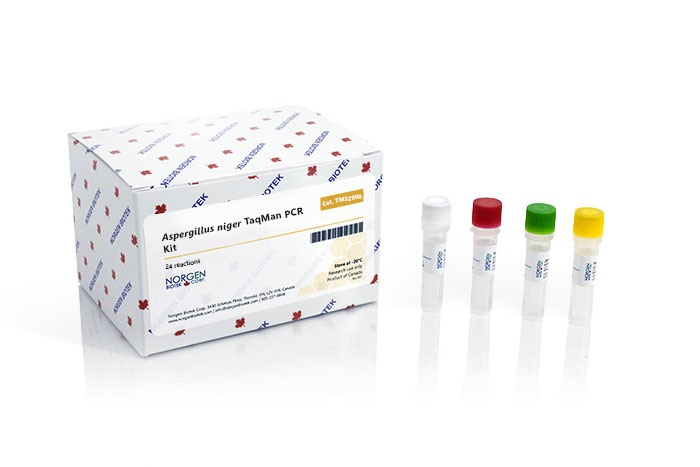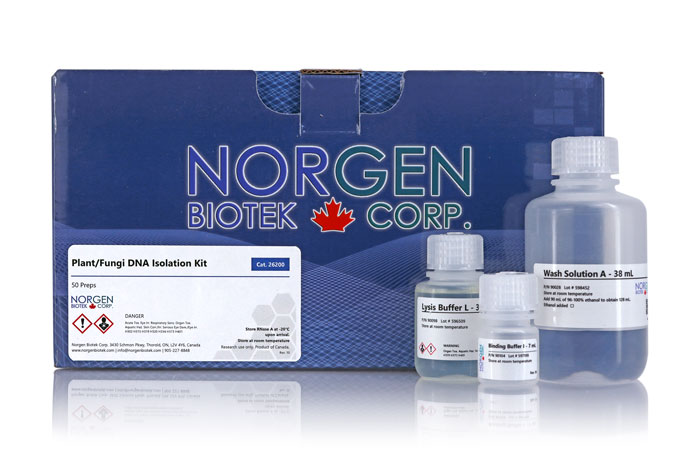Aspergillus niger TaqMan PCR Detection Kits

For research use only and NOT intended for in vitro diagnostics.
Aspergillus niger TaqMan PCR Detection Kits
Register today to receive an exclusive 15% off* on your first order.
Features and Benefits
- Detection kits for the Aspergillus niger
- Available in TaqMan format for analysis
Aspergillus niger is a fungus and one of the most common species of the genus Aspergillus. It causes a disease called black mold on certain fruits and vegetables such as grapes, onions, and peanuts, and is a common contaminant of food. It causes stem rot of Dracaena, root stalk rot of Sansevieria and boll rot of cotton. It has also been implicated in the spoilage of cashew kernels, dates, figs, vanilla pods and dried prunes. It is ubiquitous in soil and is commonly reported from indoor environments, where it produces characteristic black colonies. Some strains of A. niger have also been reported to produce potent mycotoxins called ochratoxins. Methods for the rapid and sensitive detection of the pest would be valuable to ensure food quality and protection of individuals from the possibility of ingesting potentially hazardous myco- or ochratoxins.
Click to expand options
- Ready to use format, including Master Mix for the target and PCR control to monitor for PCR inhibition and validate the quality
- Specific Primer and Probe mix for the pathogen/virus/viroid of interest
- Primer and Probe mix
- Positive and negative control to confirm the integrity of the kit reagents
- Specific Primer/Probe mix and Positive Control for the pathogen/virus/viroid of interest
- Nuclease-free water
- Can be used together with Norgen’s PCR Master Mix (#28007) or customer supplied master mix
For research use only and NOT intended for in vitro diagnostics.
Details
Supporting Data
TaqMan PCR Kit - Figure 1. Example of TaqMan PCR Positive result. Both PCR signals above the baseline from FAM and HEX channel indicate the successful PCR.
TaqMan PCR Kit - Figure 2. Example of TaqMan PCR Negative result. No target DNA was detected in FAM channel but amplification signal from HEX indicates the successful PCR.
TaqMan PCR Kit - Figure 3. Example of TaqMan PCR inhibition result. No signal from both FAM and HEX channel was detected. It is suggested to repeat the sample preparation using recommended kit for DNA purification.
Storage Conditions and Product Stability
All kit components can be stored for 2 years after the date of production without showing any reduction in performance.
All kit components should be stored at -20°C upon arrival. Repeated thawing and freezing (> 2 x) of the Master Mix and Positive Control should be avoided, as this may affect the performance of the assay. If the reagents are to be used only intermittently, they should be frozen in aliquots.
| Component | Cat. TM32950 (100 preps) | Cat. TM32910 (100 preps) |
|---|---|---|
| MDx TaqMan 2X PCR Master Mix | 2 x 700 μL | - |
| Aspergillus niger Primer & Probe Mix | 280 μL | 280 μL |
| Aspergillus niger Positive Control | 150 μL | 150 μL |
| Nuclease-Free Water (Negative Control) | 1.25 mL | 1.25 mL |
| Product Insert | 1 | 1 |


